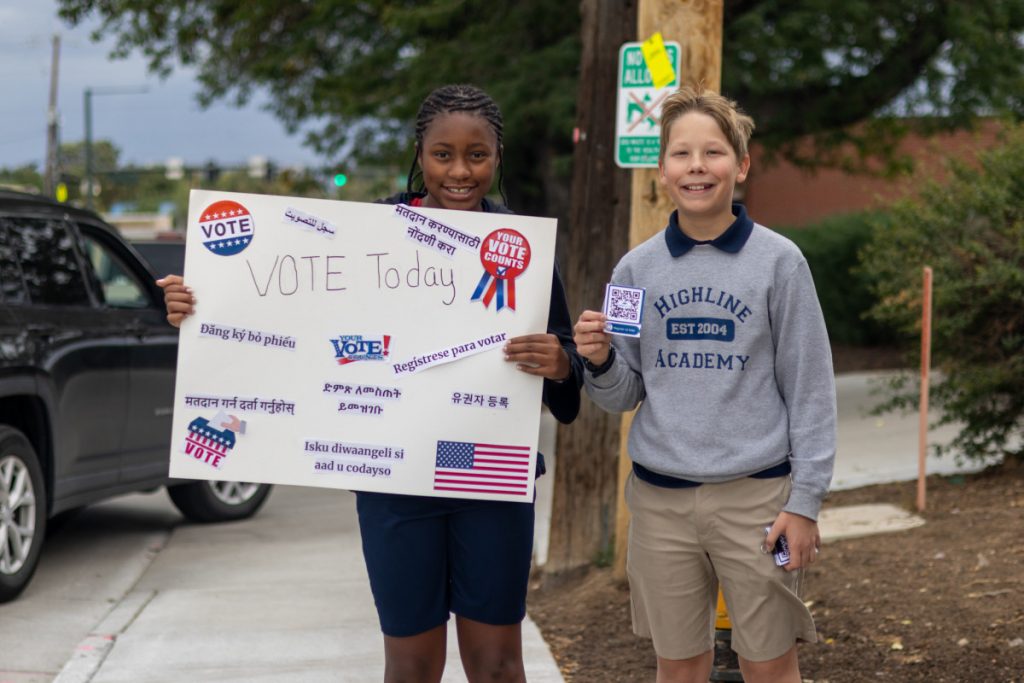As Denver Public Schools administrators and board members grappled in recent weeks with how to fill a $65 million budget gap, they made it clear that instituting “progressive pay adjustments” was a top priority. In other words, cut salaries more for people farther up the pay scale, and give raises to people making less than $25 per hour. Those earning the least would get the biggest raises.
Only it didn’t work out that way. Once the district began negotiating with the Denver Classroom Teachers Association, a major chunk of that plan went out the window. Classroom teachers, the largest employee group by far (roughly 4,800 total), and paid on average $43 per hour, won the biggest raises of anyone — between 3 and 4 percent, according to DPS finance staff.
The lowest-paid workers in the district, earning $15 per hour or less, got just a 1.9 percent boost.
There were other, smaller gifts to teachers included in the deal: A one-day reduction in the work year calendar (from 187 days to 186) with no corresponding reduction in pay, equivalent to a .5 percent increase in hourly wages; and two additional days of pay, covered by federal pandemic relief funds, one for planning and one described as “stipend for work related to COVID-19 which is above and beyond normal duties.” The price tag on those items: $4.7 million.
This isn’t to suggest that teachers, generally underpaid, don’t deserve raises, at least under normal circumstances. They do. But these aren’t normal circumstances. And by capitulating to the DCTA without so much as a whimper, district leadership has exacerbated a financial migraine that will take years to resolve.
The net impact is that DPS gave away more than $11 million in potential savings that instead will have to come out of reserves, a one time injection of cash that will have to be paid back down the road, when the budget picture is likely to be even more dire.
Not only that, plunging (not dipping) into reserves could have a negative impact on the district’s credit rating. During a presentation Monday evening, district Chief Financial Officer Jim Carpenter said credit rating has a direct impact on how much interest DPS must pay on its debt.
“It’s a piece to keep in mind as we think about the use of reserves,” Carpenter said. “The challenge is to ensure that we have a coherent and clear and well-developed plan for how to use and then how to rebuild reserves over time, and how to restore the balances so we don’t have sustained operational imbalances.”
There is also the sticky issue of Taxpayer Bill of Rights (TABOR) reserves required by law. If the district does not pass both a mill levy increase and bond issue this November (which could bring in up to $13.7 million in additional annual revenue), the district will fall below the required reserve level next fiscal year. If those votes are successful, DPS will still violate the reserve limit two years later.
At Monday’s final board meeting of the benighted 2019-20 school year, member Tay Anderson correctly pointed out that the budget deal protected the district’s lowest-wage workers. “I am grateful that we have a budget that does not have any sort of negative impacts to our hourly workers, and that we are going to continue to affirm our support for those who make an hourly wage in Denver Public Schools,” he said.
While that’s true, the self-congratulation that permeated the June 29 board meetings is almost certainly premature. Some of the deals cut and decisions made in the past days and weeks make it ever more likely that pay cuts or staff reductions are just a year or two down the road.
In fact, district staff, in its presentation to the board, began teeing up the possible ongoing savings from future pay freezes and pay reductions: potentially as much as $26 million per year.




